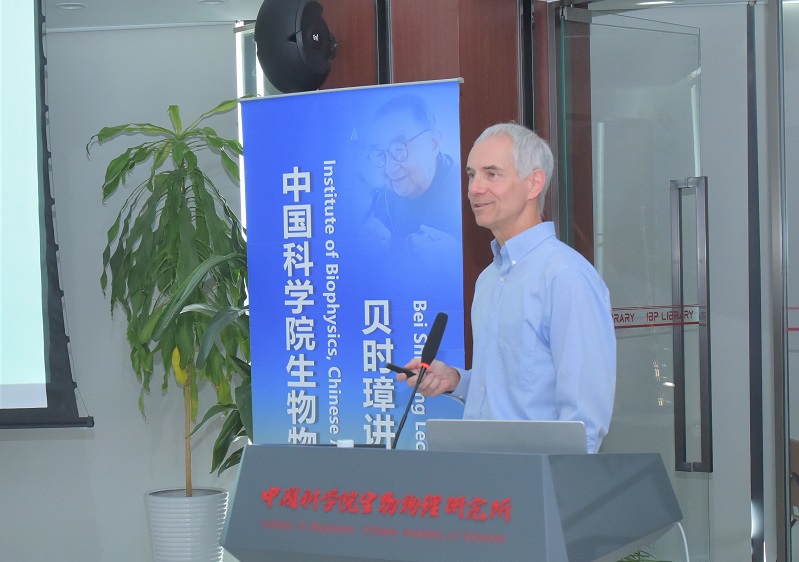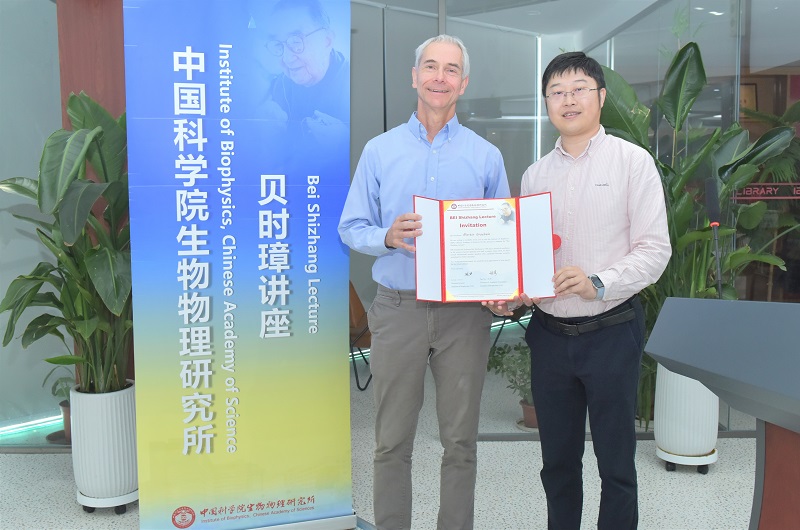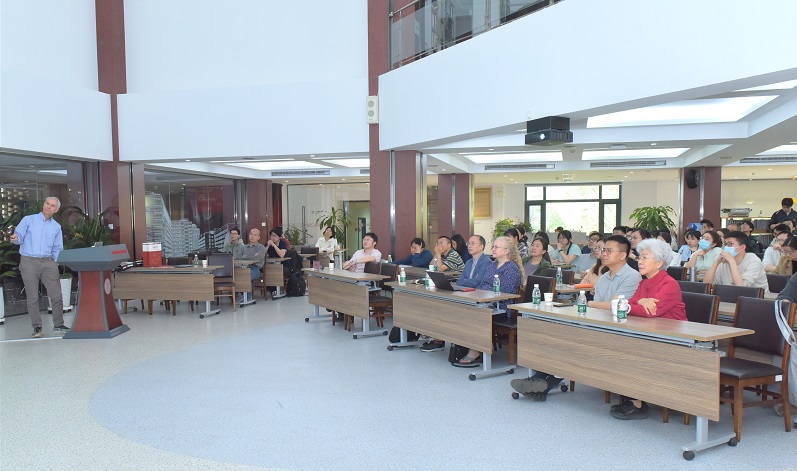Professor Martin Gruebele visited the Institute of Biophysics (IBP) and gave a Bei Shizhang Lecture
Professor Martin Gruebele from the University of Illinois at Urbana-Champaign was invited by IBP to give a Bei Shizhang Lecture entitled Protein folding and association: on the computer, in the test tube, and in the live cell on April 16, 2025. The lecture was hosted by Professor Lei Wang. A large of researches and students attended the lecture.
Professor Martin Gruebele received his Ph.D. from the University of California, Berkeley in 1988. He is renowned for his experimental and computational research on fundamental problems in chemical physics and biophysics. His work has significantly advanced our understanding of how proteins fold into functional three-dimensional structures, the mechanisms by which vibrational motion breaks chemical bonds and how these processes can be controlled, as well as how energy flows within surface-bound biomolecular structures. Professor Gruebele is a Member of the National Academy of Sciences (USA, 2013), Fellow of the American Academy of Arts and Sciences (USA, 2010), and Member of the German National Academy of Science (Leopoldina) (Germany, 2008). His accolades include the Friedrich Wilhelm Bessel Research Prize (von Humboldt Foundation, 2005), Raymond and Beverly Sackler International Prize (Israel, 2008), and the Hans Neurath Award (Protein Society, 2020).
In his lecture, Professor Gruebele emphasized the importance of understanding protein folding and protein complex formation through the lens of physics and chemistry. He then presented a comprehensive overview of his lab's research on protein folding across multiple scales-including computational simulations, biochemical experiments, cellular studies, and organism-level investigations. Topics included identifying transition states in protein refolding using molecular dynamics and in vitro experiments, studying protein-RNA complex formation in cells with the MINFLUX microscopy system developed by his team, simulating protein sticking dynamics in E. coli with all-atom models, comparing domain motions using FRET both in vitro and in vivo, and examining protein stability and dynamics in different tissues of zebrafish using live-cell FRET imaging. Through these multi-scale studies, Professor Gruebele discovered that differences in protein folding exist not only between in vitro and in vivo conditions, but also among homologous proteins across species and between different cell types of the same species. He highlighted the role of the complex intracellular environment in modulating the protein folding energy landscape. Molecular crowding and sticking in cells compact protein conformations, thereby facilitating folding. He also emphasized the functional significance of quinary structures formed by transient weak interactions and the substantial energetic contribution of water to protein folding.
Following the lecture, Professor Gruebele engaged in a lively discussion with faculty and students. He offered detailed insights and future outlooks on topics such as the application of artificial intelligence to protein folding, key factors affecting folding, and the protein folding dynamics in phase separation. Attendees expressed that the event was highly enriching, deepened their understanding of the nature and significance of protein folding, and provided valuable inspiration for future research endeavors.

Professor Martin Gruebele was giving the lecture

Prof. Martin Gruebele and Prof. Lei Wang

The audience

